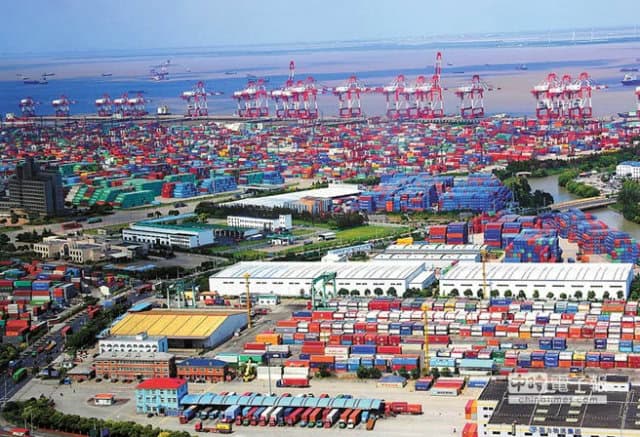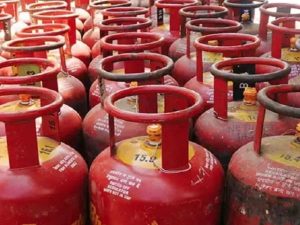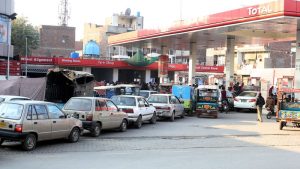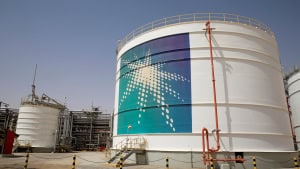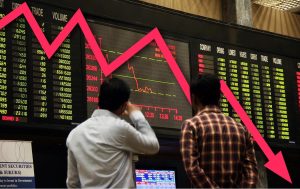SHANGHAI – China has urged Pakistani entrepreneurs to benefit from the Shanghai Pilot Free Trade Zone (SHFTZ) aimed at opening up new economic opportunities and explore new markets for their products.
Briefing a group of Pakistani newsmen, Director General Bureau of External Communications of SHFTZ Wang Ying on the Economic Free Zone said it was an important part of the China’s One Belt, One Road project.
He said it would have numerous advantages for Pakistan and would not only boost their bilateral economic relations, but also provide an opportunity to the Pakistani businessmen to introduce their products and expand their ventures outside of their borders.
The journalists were on a short-term training program at the Renmin University, Beijing organised by the Chinese embassy at Islamabad aimed at enhancing mutual understanding and exchange between Chinese and Pakistani media.
The economic zone established in 2013 is spread over an area of more than 120 km along the golden coast of the East China Sea comprises, and is touted as the opening of a new chapter in China’s opening up and embarking on a new path. It has registered 23,243 companies, 14,860 of them newly registered and 2,342 foreign-funded.
Wang Ying said so far 16 countries from the Central and Eastern Europe have their presence and pointed that special facilities were being extended to foreign investors, besides a one-window operation to cut down business costs and time.
He said the strong bonds between Pakistan and China can be translated into stronger economic ties with the availability of a modern Free Trade Zone. He said Pakistani businessmen can boost their trade by utilizing the facilities available and enhance their portfolio. He urged the Pakistani media to highlight the opportunities for Pakistani entrepreneurs who would like to increase their reach beyond the borders.
He said the zone has been specially designed for the countries; part of the One Belt, One Road initiative and would boost the business opportunities of the companies in the zone. He said these companies can extend their footprint in China and beyond.
The Director General assured that Pakistani businesses would be fully facilitated and welcomed. He said the SHFTZ would like to have a Pakistani pavilion along with those of other countries and said it would be a big boost for Pakistani companies.
The Economic Zone was established to target investment management, trade facilitation, financial services and transformation of government functions. Four bonded areas were merged under it under the special administration of Shanghai Customs.
The Waigaoqiao Free Trade Zone, part of the SHTFZ has attracted thousands of companies, making it the biggest special-administered area under Customs in terms of economic output and range of services. It has become an important trade center in Shanghai, dedicated to building professional trade platforms in several categories: watches, automobiles, engineering machinery, machine tools, medical devices, biomedicine, healthcare products, cosmetics and cultural products.
The Waigaoqiao Free Trade Logistics Park serves as a centre for multinational companies to export and source products in northeastern Asia, and can import non-ferrous metals and information technology components. The Yangshan Free Trade Port has attracted companies in industries such as information technology, electronics, automobiles and auto parts, food processing and name-brand clothing. The port currently is the fastest growing and most profitable of China’s 15 free trade ports.
The Pudong Airport Free Trade Zone functions as an “experimental area for innovative air services.” Multinational companies in electronics, medical devices and high-end consumer goods have established distribution centers in the zone and become involved in related financial leasing projects, while leading courier companies have developed a strong business chain of air freight distribution, financial leasing, express transit and exhibitions of Asia-Pacific trade.
The media team also visited Sinopec, a leading international energy and chemical company engaged in business in oil and natural gas exploration, production and trading of petroleum products, refinement and marketing. It also deals with sale of chemical products.
They were briefed by a representative of the Company Ali about the company that has presence in over 70 countries, produces 10 billion cubic meters of shale gas, has over 30,000 gas stations and accounts for 40 percent of China’s geothermal heated area in 16 provinces. Besides it produces over 70 million tons 70. 32 billion cubic meters of natural gas, and a processing capacity of 237 million tons of crude oil.
The media team from Pakistan also had an extensive interaction with leading Chinese personalities dealing with the Media, Mass Communications, Energy, Education and Economy.
Earlier in a series of lectures during the short-term training program at the Renmin University, Beijing , leading academicians highlighted the deep Sino-Pakistan ties and the importance of exploring new avenues of cooperation. The speakers termed China a land of economic miracle of 21st century and said both Pakistan and China can benefit immensely by sharing experiences and optimally benefit from their important location.
Professor Zhong Xin of Renmin University’s School of Journalism speaking on ‘Chinese media industry and international media cooperation highlighted development of Chinese media industry, including newspapers, TV channels and online journalism. He said frequent interaction among representatives of media and other institutions helped increase cooperation between people of the two countries.
Executive Vice Dean University School of Public Administration and Policy Professor XU Gyang Jian speaking on “Chinese Economic Progress, Challenges, and Reforms,” said with committed and powerful leadership, the13th five- year plan (2016-20) highlighted the Chinese economic progress and said change of economic structure was the basic feature of economic progress as new reforms were being implemented in China.He said China wants to further strengthen ties with Pakistan especially in media and education.
Delivering a lecture on ‘Belt and Road Initiatives’, Associate Professor of Renmin University said China was the second largest oil user and the biggest user of energy in the world and was trying to develop environment friendly technology. He said the CPEC project would help change the fate of entire region.–APP

